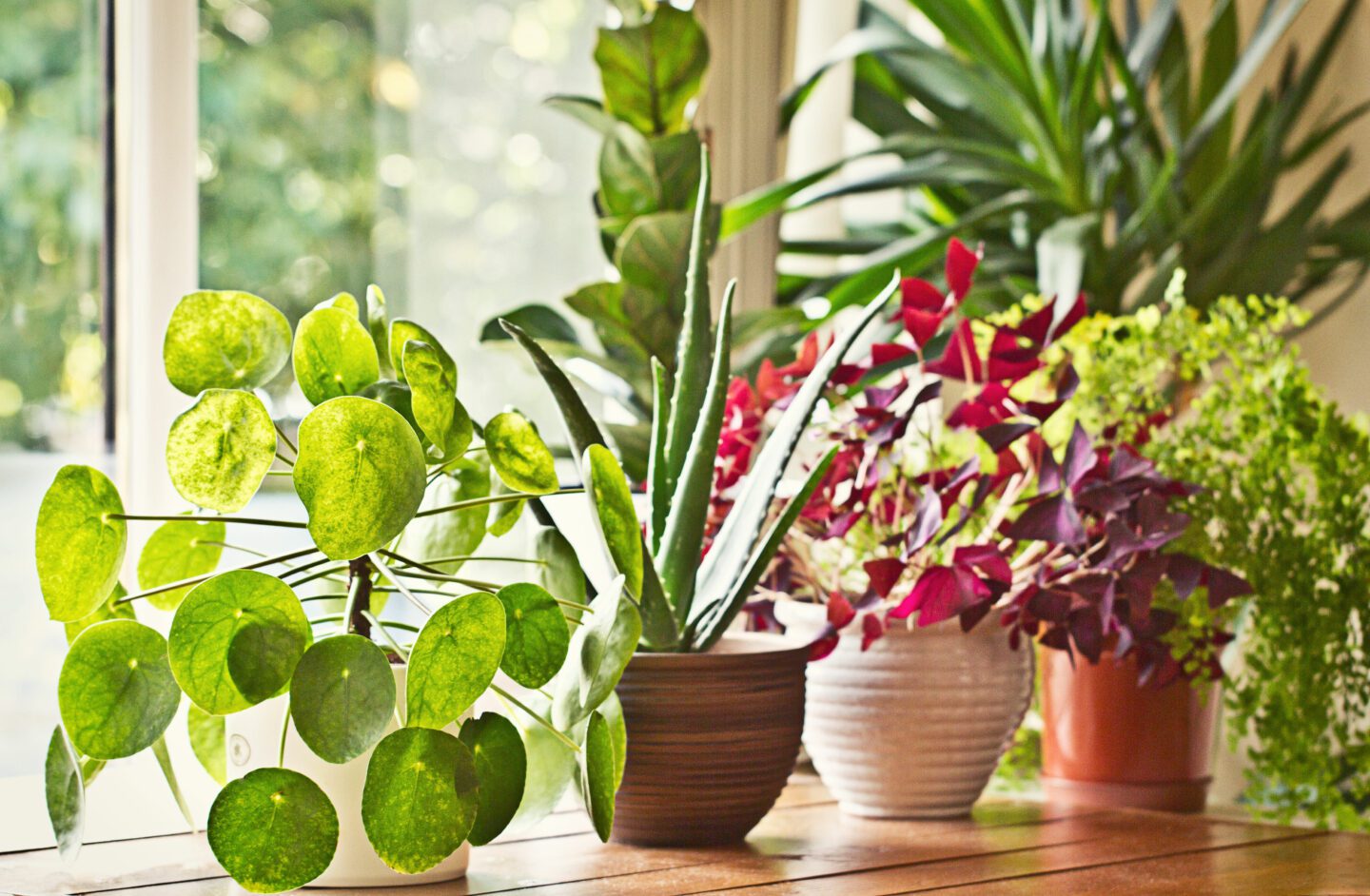Houseplants are a brilliant addition to any home – they clean the air, boost your mood, brighten up your living space and help you cultivate your green thumb, even if you have no outdoor space.
Not sure where to start? We’ve created a simple and useful beginner’s guide to indoor plants.
Choosing an
indoor plant
When it comes to choosing the perfect indoor plant for your home, there are a few factors to consider. There is a wide range of houseplants to choose from, whether you’re looking for a smaller low-maintenance plant or something larger to fill the corner of a room, there is something for everyone!
If you’re looking for an easy-to-take-care-of plant, we suggest:
- Aloe Vera
- Snake plant (Dracaena trifasciata)
- Chinese Evergreen (Algaonema)
If you’re looking for something a little more unique, we suggest:
- Peace Lily (Spathiphyllum)
- Moth Orchid (Phalaenopsis)
- Spider Plant (Chlorophytum comosum)
If you’re looking for something bigger, we suggest:
- Monstera
- Money Tree (Parchira aquatica)
- Rubber Plant (Ficus elastica)
Need a pet-friendly houseplant? We suggest:
- Chinese Money Plant (Pilea peperomioides)
- Polka Dot Plant (Hypoestes phyllostachya)
- Prayer Plant (Maranta leuconeura)
The benefits
of houseplants
There are many proven health benefits to having plants in your home. Research suggests they are incredibly beneficial towards our well-being and productivity levels, as well as improving the overall air quality!
The list doesn’t stop there, indoor plants have also been found to:
- Improve mood
- Reduce stress levels
- Increase productivity and attention span (add a plant to your home office!)
- Reduce fatigue and headaches
- Enhance air quality
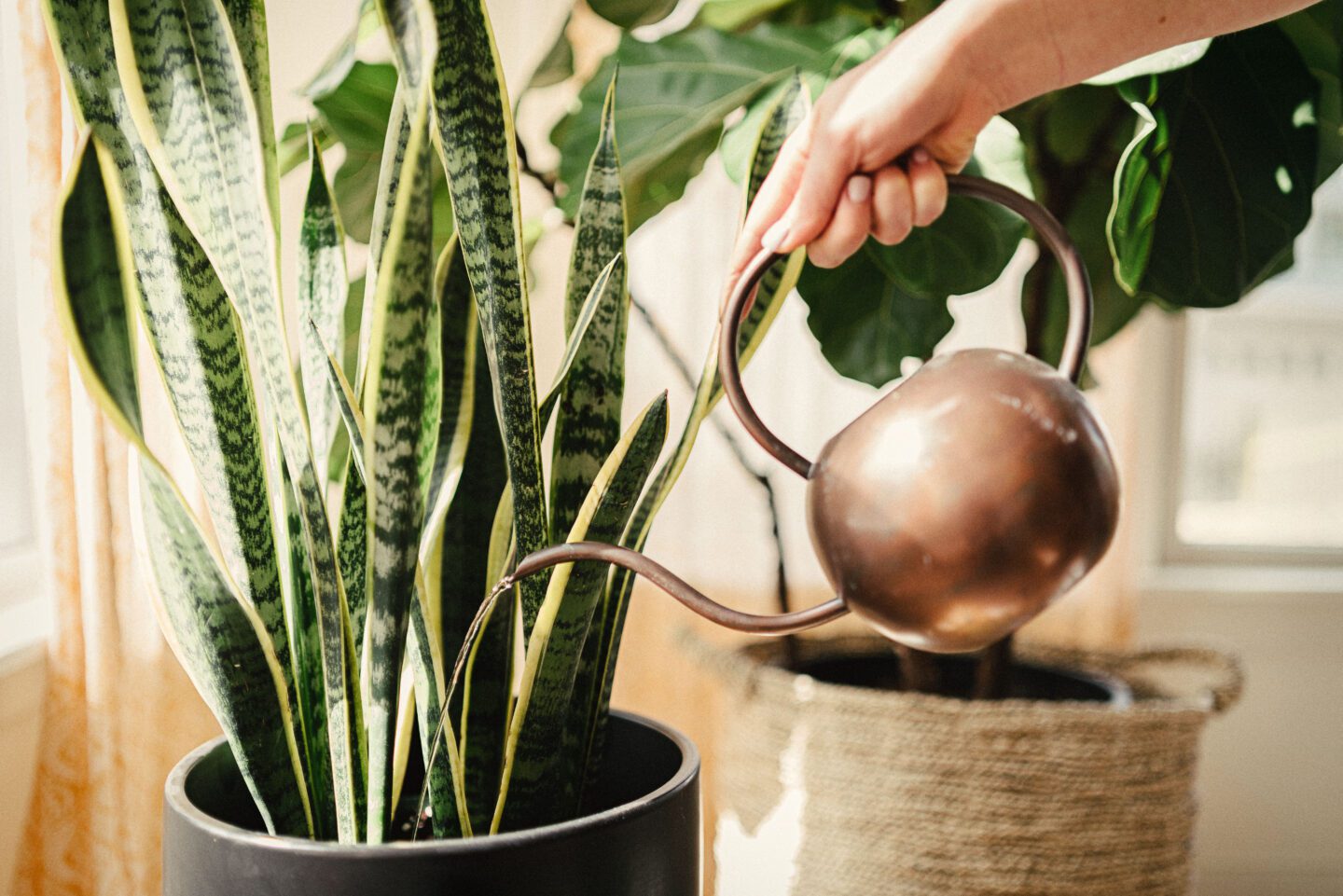
Creating a
suitable climate
For houseplants to thrive in your home, they require proper care and a suitable climate. The most important elements required for healthy houseplants are light, water, temperature, and humidity. Be sure to research what the indoor plant you have chosen requires, and to consider:
- Light: Always check how much light your indoor plants require. If your home doesn’t receive much light, you may want to consider a more low-maintenance plant or think about using artificial lighting. The amount of light a plant receives will determine its life cycle, appearance, and overall function. For example, succulents and cacti need a stream of continuous sunlight, and plants with foliage need roughly 8 hours of light per day.
- Water: It’s a known fact that plants will die without water. However, they will also deteriorate if watered too much. Overwatering is the most common cause of houseplant deaths! Giving your plant too much water makes the compost soggy and airless and will eventually lead to the roots suffocating your plant. An easy way to check if your plant needs watering is by rubbing your thumb over the surface of the compost to check if the soil feels dry and has no sponginess left.
- Temperature: Most indoor plants prefer temperatures between 17-24°C during the day and slightly cooler at night. Avoid placing your houseplants near things that change temperatures, like radiators or air conditioners. Suitable ventilation is also necessary for the growth of your plants, so be sure to let some fresh in now and then.
- Humidity: Most houseplants require moist air for overall health. Although many houseplants create humidity on their own, it’s often not enough. Yellowing or a loss of leaves are common indicators that your indoor plant needs more humidity. It’s always a good idea to group houseplants in one area so more moisture is produced and to give your plants a daily mist of water.
- Fertiliser: Fertiliser is occasionally required to help sustain your indoor plant’s overall health and vigour. Although there is no general rule for fertilising, it’s a good idea to familiarise yourself with basic houseplant fertiliser guidelines to avoid overfeeding, which can stunt the growth of your indoor plants.
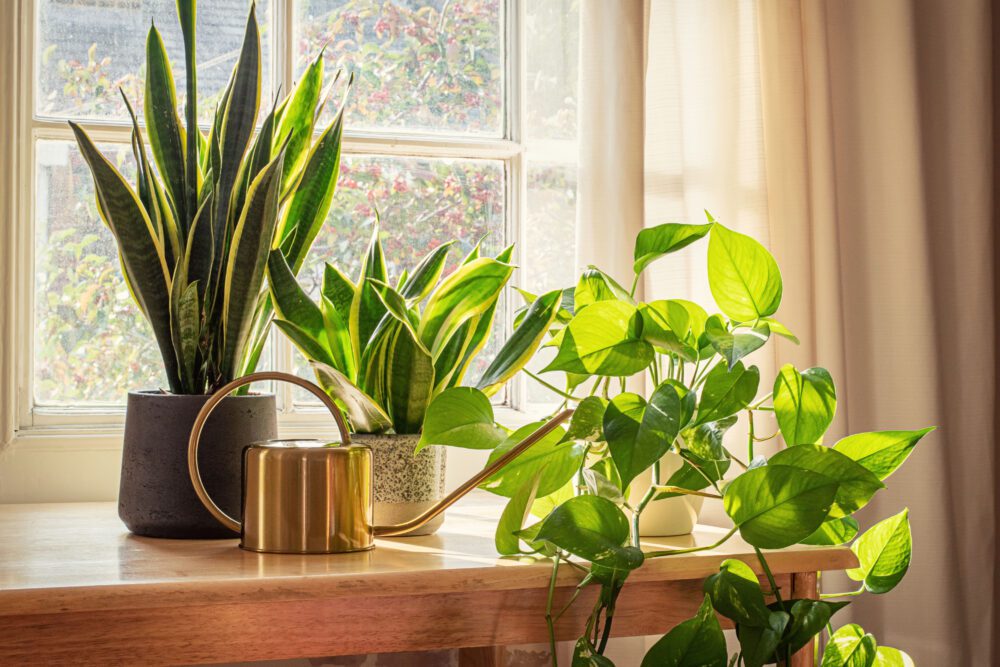
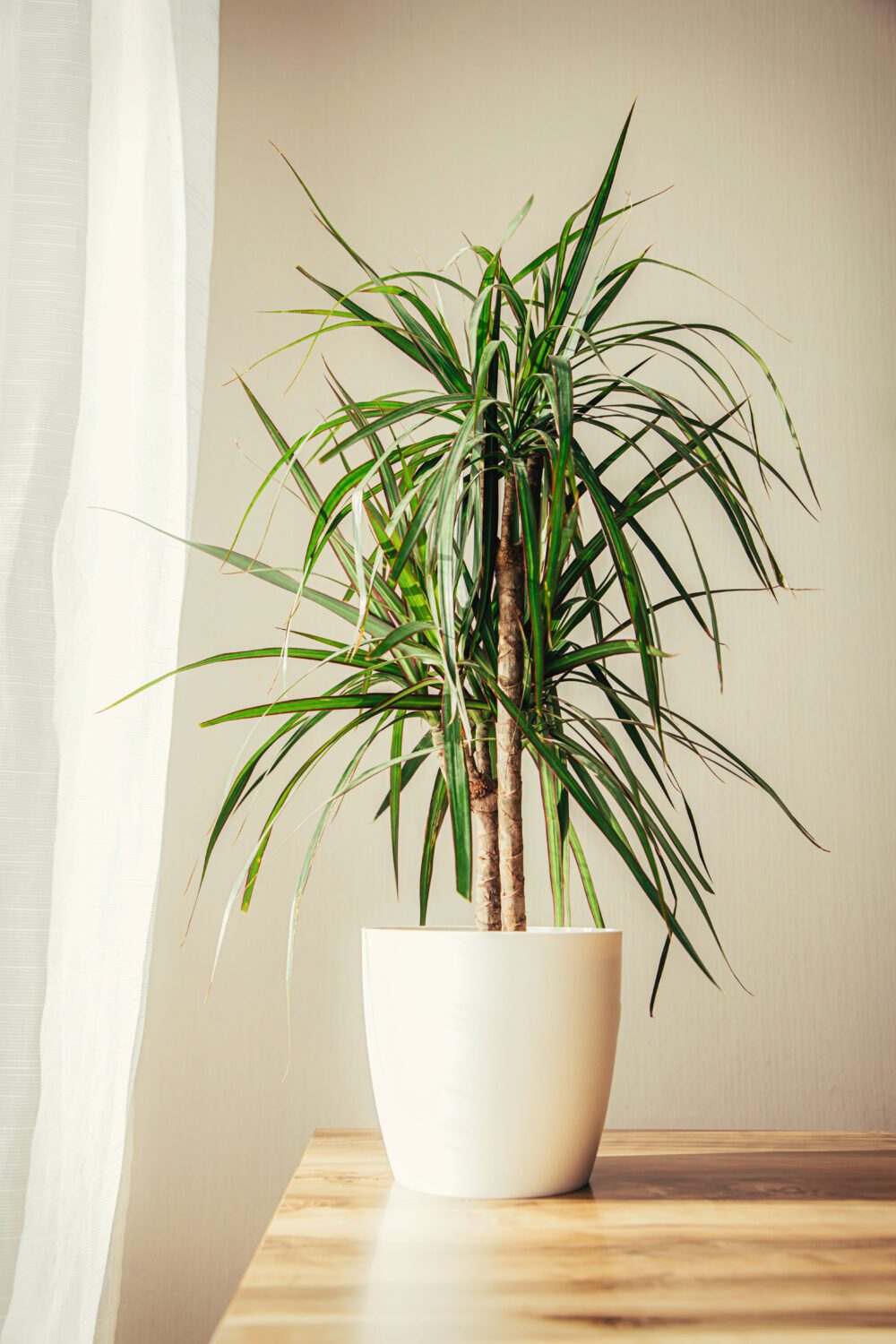
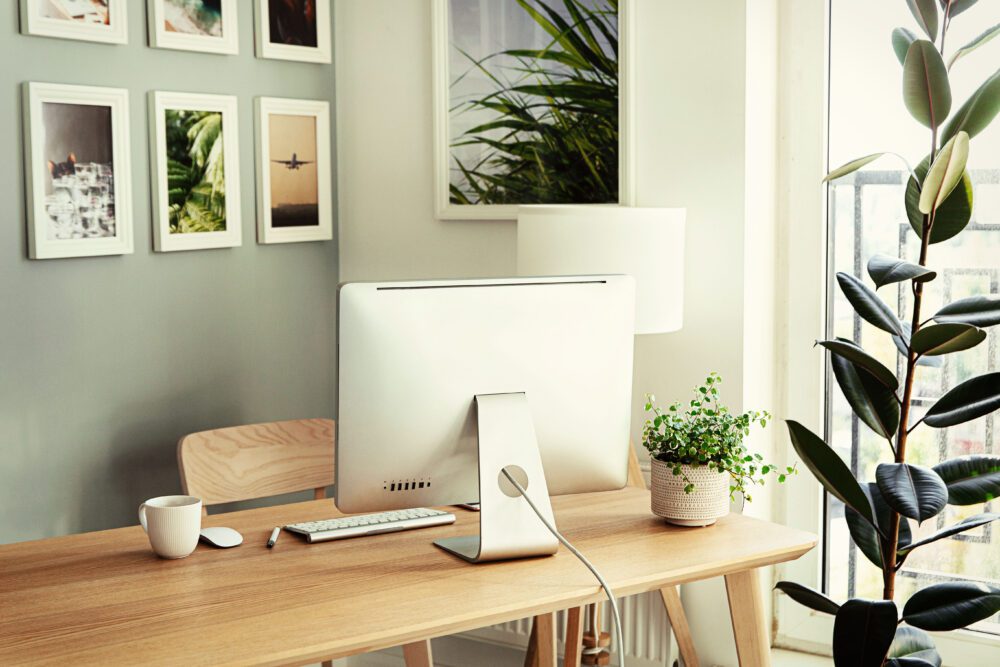
Keeping your plants
healthy
Once you have created a suitable environment for your indoor plants to live in, you must maintain proper care. There are several common health problems houseplants can suffer from, so be sure to check your plants regularly for any signs of trouble. To ensure your houseplants stay healthy, always check:
- Try to keep the air recycled and fresh. Adequate ventilation is vital for your indoor plants to grow, with damp stuffy air being a common cause of fungal diseases.
- Do not overfeed your plants. Too much nitrogen causes plant growth to be soft and sappy, making them more vulnerable to pests and diseases.
- Repot overgrown houseplants. If the plant’s roots are circling the inside of the container, it may be time to repot. If the plant has overgrown its pot, simply transplant it into a slightly larger container. If you’d like to keep it in the same pot, trim off some of the roots and replant into the container using fresh soil.
Time to sell
your home?
Now could be the perfect time. Get in touch to discuss the best strategy for finding you a buyer this winter.
Request a valuation









